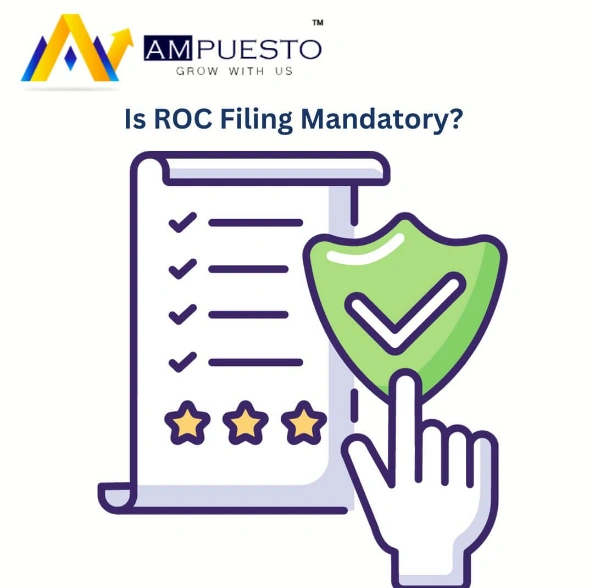In the world of business and corporate compliance, the term “ROC filing” often comes up. But what exactly does it entail, and is it mandatory for all businesses? In this article, we will delve into the intricacies of ROC filing, exploring its significance, and answering the fundamental question: Is ROC filing mandatory?
What is ROC Filing?
ROC filing stands for Registrar of Companies filing, and it is a crucial requirement for companies registered under the Companies Act, 2013, in India. The Registrar of Companies is an office under the Ministry of Corporate Affairs responsible for regulating and maintaining the records of companies in the country.
Types of ROC Filings
There are various types of ROC filings, each serving a specific purpose. Some of the common ROC filings include:
1. Annual ROC Filing (Form AOC-4 & MGT-7)
Every company, whether private or public, is required to file its annual financial statements and annual returns with the Registrar of Companies. This filing includes the company’s balance sheet, profit and loss account, and other financial documents.
2. Event-Based Filings
Apart from annual filings, companies need to submit documents to the ROC when specific events occur. For instance, changes in the company’s share capital, the appointment of directors, or alterations in the memorandum of association necessitate event-based filings.
3. Special Resolutions (Form MGT-14)
When a company passes a special resolution for significant decisions like alteration of the company’s objects, name change, or conversion from a private to a public company, it must file Form MGT-14 with the ROC.
Is ROC Filing Mandatory?
The short answer is yes, ROC filing is mandatory for companies registered under the Companies Act, 2013. Failure to comply with ROC filing requirements can result in severe consequences, including legal penalties, fines, and even the striking off of the company’s name from the register.
Consequences of Non-Compliance
1. Legal Penalties
Companies that do not file their annual returns or other required documents with the ROC can face legal action. The directors and officers of the company may be held personally liable for these violations.
2. Striking off the Company
If a company consistently fails to file ROC returns, the ROC may take the drastic step of striking off the company’s name from the register. This essentially means that the company ceases to exist as a legal entity.
3. Difficulty in Legal Proceedings
Non-compliance with ROC filing can also hamper a company’s ability to initiate or defend legal proceedings. It can be challenging to establish the legal standing of a company that is not in compliance with statutory requirements.
Why is ROC Filing Important?
- Transparency and Accountability
ROC filing ensures transparency and accountability in the functioning of a company. It provides stakeholders, including shareholders, creditors, and regulatory authorities, with access to vital information about the company’s financial health and operations.
- Legal Compliance
Compliance with ROC filing requirements is a legal obligation. It demonstrates a company’s commitment to following the law and upholding corporate governance standards.
- Access to Finance
Many financial institutions and investors require companies to be up-to-date with their ROC filings before extending loans or investments. Non-compliance can limit a company’s access to finance.
Conclusion
In conclusion, ROC filing is not just a bureaucratic requirement; it is a fundamental aspect of corporate governance and legal compliance. Companies must prioritize timely and accurate ROC filings to avoid legal repercussions and maintain their credibility in the business world.
FAQs
1. How often do I need to file ROC returns?
- Annual ROC filings must be submitted once a year. Event-based filings should be done promptly when specific events occur.
2. Can small businesses skip ROC filing?
- No, ROC filing is mandatory for all companies, regardless of their size.
3. What happens if I miss the ROC filing deadline?
- Missing the ROC filing deadline can result in penalties, legal action, and even the striking off of the company’s name from the register.
4. How can I ensure accurate ROC filings?
- It’s advisable to seek professional assistance or use online filing portals to ensure accuracy and compliance with ROC filing requirements.
5. Is ROC filing the same as income tax filing?
- No, ROC filing is separate from income tax filing. ROC filing deals with regulatory compliance, while income tax filing is related to taxation.
Remember, staying compliant with ROC filing requirements is not just a legal obligation; it’s a step towards building trust and credibility in the business world.









